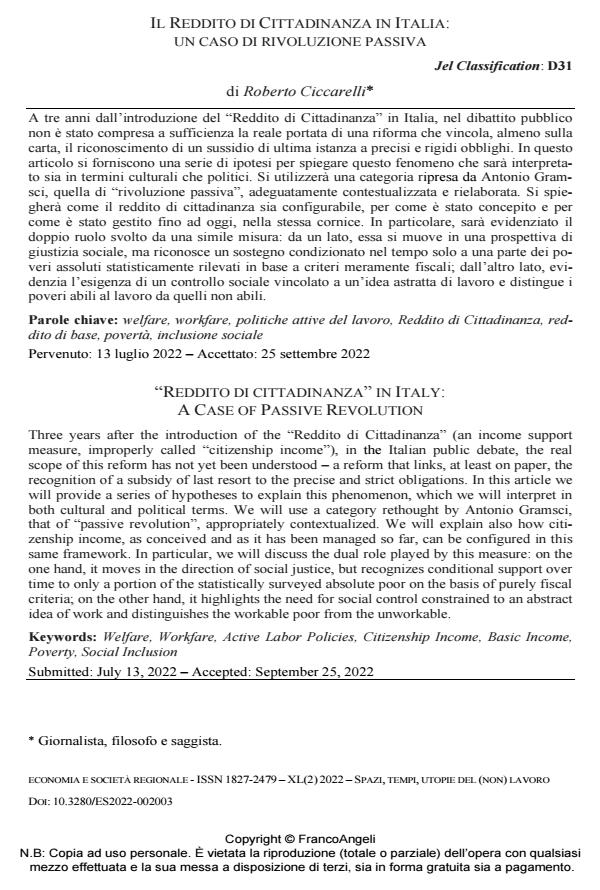"Reddito di cittadinanza" in italy: a case of passive revolution
Journal title ECONOMIA E SOCIETÀ REGIONALE
Author/s Roberto Ciccarelli
Publishing Year 2022 Issue 2022/2
Language Italian Pages 14 P. 23-36 File size 294 KB
DOI 10.3280/ES2022-002003
DOI is like a bar code for intellectual property: to have more infomation
click here
Below, you can see the article first page
If you want to buy this article in PDF format, you can do it, following the instructions to buy download credits

FrancoAngeli is member of Publishers International Linking Association, Inc (PILA), a not-for-profit association which run the CrossRef service enabling links to and from online scholarly content.
Three years after the introduction of the "Reddito di Cittadinanza" (an income support measure, improperly called "citizenship income"), in the Italian public debate, the real scope of this reform has not yet been understood - a reform that links, at least on paper, the recognition of a subsidy of last resort to the precise and strict obligations. In this article we will provide a series of hypotheses to explain this phenomenon, which we will interpret in both cultural and political terms. We will use a category rethought by Antonio Gramsci, that of "passive revolution", appropriately contextualized. We will explain also how citi- zenship income, as conceived and as it has been managed so far, can be configured in this same framework. In particular, we will discuss the dual role played by this measure: on the one hand, it moves in the direction of social justice, but recognizes conditional support over time to only a portion of the statistically surveyed absolute poor on the basis of purely fiscal criteria; on the other hand, it highlights the need for social control constrained to an abstract idea of work and distinguishes the workable poor from the unworkable.
Keywords: Welfare, Workfare, Active Labor Policies, Citizenship Income, Basic Income, Poverty, Social Inclusion
Jel codes: D31
Roberto Ciccarelli, Il reddito di cittadinanza in italia: un caso di rivoluzione passiva in "ECONOMIA E SOCIETÀ REGIONALE " 2/2022, pp 23-36, DOI: 10.3280/ES2022-002003